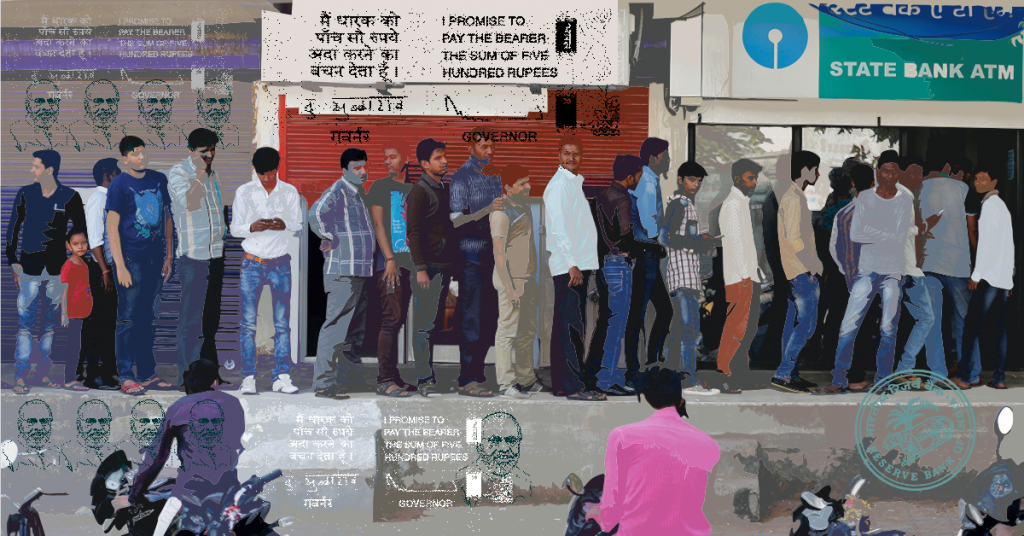It’s been two years since Prime Minister Narendra Modi addressed the nation and announced that Rs 1000/- and Rs 500/- currency notes had been demonetised and were no longer valid currency. While new notes of different denominations were subsequently introduced, one cannot deny the chaos that ensued as people scrambled to exchange currency and long queues became a regular feature outside banks and ATMs.
Throughout the exercise the government kept shifting the goalposts, and kept changing stated objectives of the exercise. The Central government and RBI issued 74 notifications during its execution period of 50 days that included several rollbacks. After all the distress that the exercise caused the common citizens of the country, RBI in its Annual report of 2017-18 said that 99.3% of the notes came back to the banking system. Experts have also noted that none of the other stated objectives like fighting corruption and terrorism control etc., were met, either. Jayati Ghosh, economics professor at New Delhi’s Jawaharlal Nehru University said,“Instead, what it did was give a body blow to the informal economic activity and I don’t think that the country has still fully recovered from it.” Here’s a blow by blow account of a monetary policy many say has crippled the Indian economy.
[TIMELINE-31516]
Related:
Understanding the Aadhaar case
Farmers’ Income may fall by 25 percent due to Climate change: Economic Survey 2018

